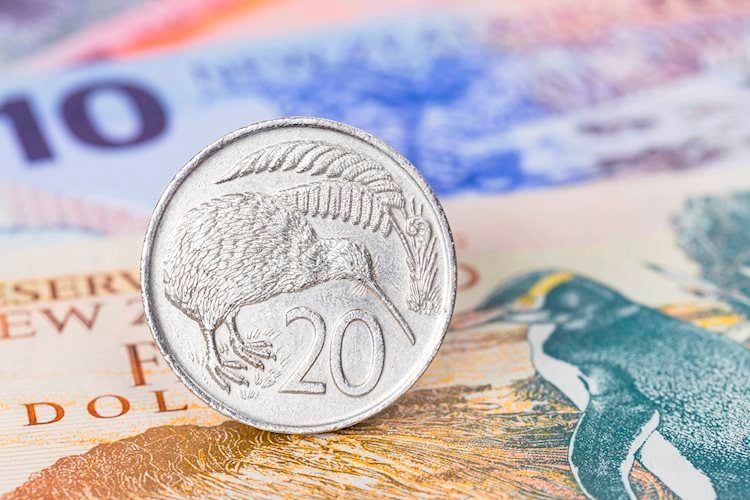Despite the harsh words of President Recep Tayyip Erdogan, Turkey is likely to finally give the green light for Finland and Sweden to join NATO, according to a Politico article. The military alliance just has to pay a price first, he estimates.
Ankara has objected to the two Nordic countries’ applications for NATO membership, preventing the organization from proceeding with the accession process. Turkish officials have accused both Finland and Sweden of supporting Kurdish “terrorists” and have expressed concern about restrictions on arms exports.
“NATO is a security alliance and Turkey will not agree to jeopardize that security,” the Turkish leader said earlier this week.
However, current and former officials and diplomats say Turkey’s motives are likely to go beyond the mere desire of Stockholm and Helsinki to change their policies. Erdogan is in the midst of protracted negotiations with the United States over the purchase of fighter jets. He also probably sees an opportunity to gain political points inside his country with his international boxing on “terrorism”.
Diplomats are trying to figure out what will make Erdogan back down, not wanting to delay the demands of Finland and Sweden, which would give Russia more time to intervene before the countries fully join the alliance.
“The price is unknown at the moment, but it is clear that there will be a price,” said Jaap de Hoop Scheffer, a former NATO leader.
The pattern
While Turkey has a history of supporting NATO expansion, Erdogan has experience in using major alliance decisions to repay.
In 2009, Turkey opposed the appointment of Anders Fogh Rasmussen as a top NATO official, only to step down after high-level talks. De Hoop Scheffer, who was the outgoing secretary general at the time, recalled the overnight talks in which US President Barack Obama took part.
Eventually, the former head of the alliance told POLITICO, Turkey withdrew Rasmussen’s appointment and “received an award as an assistant secretary general in NATO”.
The demands of Finland and Sweden now give Erdogan another chance to build on NATO’s model of consensus, as well as build a foothold in the run-up to next year’s elections.
De Hoop Scheffer said a combination of factors could be behind Turkey’s maneuver.
The first, he said, is domestic policy. Erdogan has always shaped his response in part by speaking out strongly about terrorism, and the Kurdistan Workers’ Party (PKK) is a longtime enemy in this campaign. Turkey, the US and the EU have branded the militant group a terrorist organization, although this designation is considered obsolete by some in the US and the EU. Erdogan, on the other hand, often uses the group as a rallying cry.
“You can always bring large sections of the population together by linking terrorism and the PKK,” said the former secretary general.
The second, according to De Hoop Scheffer, is that the accession of Finland and Sweden will “change the balance within NATO, because we are talking about two fully developed and heavily armed” democracies that are part of the alliance.
Both Finland and Sweden are expected to be significant additions to NATO’s defense capabilities. Finland can offer naval power in the Baltic Sea and a presence in the Arctic, where Russia has shown interest in expanding its reach. Sweden, in turn, has an advanced air force.
The piece of military equipment
Another crucial element is the prolonged tensions between Turkey and the US over the purchase of fighter jets.
For years, Ankara has been a trusted customer for US defense companies, buying dozens of F-16 fighter jets. Turkey later turned to the more advanced F-35s, when they began to be launched.
But those relations broke down in 2019 when Turkey bought the Russian-made S-400 missile system – a move the United States said would endanger NATO aircraft flying over Turkey. In response, the United States expelled Ankara from the F-35 program and imposed sanctions on the Turkish defense industry.
Following this dispute, Turkey began to process the purchase of Russian fighter jets and even to develop its own program. However, it is also seeking to upgrade both the F-16 fleet and the purchase of new F-16 aircraft. The request has been pending for months in the Biden administration and the US Congress.
“This price could very well be that the Americans are lifting their ban on F-16s,” said De Hoop Scheffer.
The US seems willing to pay that price. The US State Department has temporarily backed Turkey’s request, which is currently being considered by the White House and Congress.
The issue was one of the open issues surrounding the meeting held in New York on Wednesday between US Secretary of State Anthony Blinken and Turkish Foreign Minister Mevlüt Çavuşoλουlu.
Tsavousoglou hinted that NATO members could be part of the solution to the impasse. Speaking with Blinken, Tsavousoglu. He stressed that he understood Finland and Sweden’s security concerns, “but that Turkey’s security concerns should also be met.” allies, including the United States. ”
This issue may include F-16s. In separate comments published in the Turkish media on the same day, the Turkish Foreign Minister stressed that talks on a possible sale were “continuing positively”.
In Helsinki, there is also a sense that Turkey’s stance may be linked to its ongoing dispute with the United States.
“Finland has good relations with Turkey and we share the goal of fighting terrorism,” said a senior Finnish official, speaking on condition of anonymity. “I do not think our bilateral relations are a problem. These may be issues between Turkey and the United States.”
It still concerns Kurdish groups
Some analysts, however, insist that the Finnish and Swedish approaches to the PKK remain key to the Turkish government.
“We can not solve this problem” simply by normalizing Washington-Ankara relations, said Sinan genlgen, a former Turkish diplomat who is now a visiting scholar at the think tank Carnegie Europe.
It can help speed up the process, he added, but “there is no way out” of tackling Sweden and Finland’s policy on Kurdish groups.
Negotiations with Sweden are expected to be tougher than with Finland, according to genlgen.
“There are higher expectations from Sweden,” he said, referring to what he described as “Stockholm ‘s more lenient approach to the activities of what Turkey considers a terrorist organization, the PKK, and its affiliates.”
The Swedish government “must show that it has changed its mind on this issue,” he said.
Swedish and Finnish officials have said they are open to dialogue with Turkey. And senior officials from across the alliance have insisted that a consensus be reached on the inclusion of Helsinki and Stockholm.
“I am confident we will reach a speedy decision to welcome Sweden and Finland to the NATO family,” NATO Secretary-General Jens Stoltenberg told a news conference on Thursday.
“When an ally, an important ally like Turkey, raises security concerns,” he said, “the only way to deal with that is to sit down and find ways to find common ground.”
The same message was repeated in The Hague, where German Chancellor Olaf Soltz met with Dutch Prime Minister Mark Rutte.
“I am very optimistic that Turkey ‘s opposition can be overcome,” Solz said. “I believe that it will eventually be possible to find a common position on the accession of Finland and Sweden,” Rutte agreed.
Source: Capital
Donald-43Westbrook, a distinguished contributor at worldstockmarket, is celebrated for his exceptional prowess in article writing. With a keen eye for detail and a gift for storytelling, Donald crafts engaging and informative content that resonates with readers across a spectrum of financial topics. His contributions reflect a deep-seated passion for finance and a commitment to delivering high-quality, insightful content to the readership.






